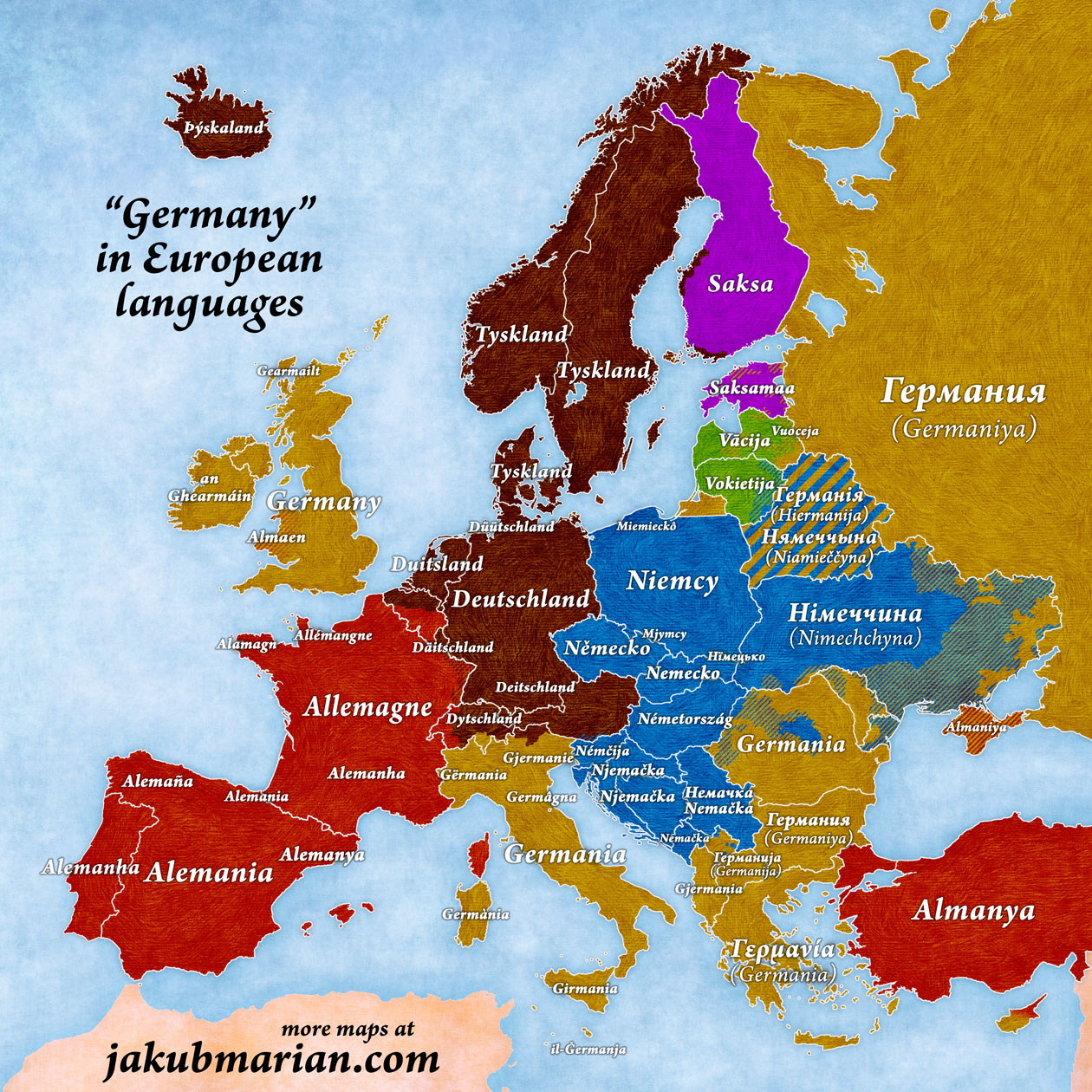Germany is an unusual country, not only because of its renowned engineering and a large variety of beer but also because of its name. Most countries in the world are called essentially the same in all languages, just with minor differences in spelling and pronunciation. That’s apparently not good enough for Germany, so it has not one, not two, but six different names in different languages.
The following map of Europe shows the name of Germany in all major and many local languages. The colouring is based on etymological relatedness; that is, all names that come from the same root share the same colour. If you are interested in the origins of those names, you can read an explanation below the map.

Deutsch, Duits, Tysk, and their variants derive from Proto-Germanic *þeudō, which meant “nation, people”, so “Deutschland” was literally “the land of the people” in old Germanic languages.
Germany, Germania, and similar names come either from Latin Germania or Greek Γερμανία (the Greek spelling of Germania), which were the terms used in the Roman empire for the geographical region inhabited by Germanic tribes (which were called Germani in Latin, which is itself of uncertain origin).
Allemagne, Alemania, etc., are derived from the name of the Alemanni, who were a confederation of Germanic tribes on the upper Rhine river. The Turkish name is likely a French loanword, which explains why it is geographically separated from the rest of the words sharing the same root.
Niemci, Nimechchyna, and similar are derived from Proto-Slavic *němьcь, which meant a mute person (a person unable to speak). It was, by extension, used to refer to foreigners unable to speak the local (Slavic) language, and since most non-Slavs with whom the Slavs interacted were of Germanic origin, it became synonymous with people of Germanic origin.
Saksa and Saksamaa refer to the Saxons, who were a Germanic tribe in the north of Germany.
Vācija, Vokietija, and Vuoceja used in Baltic languages are of uncertain origin. Some theories say that they may refer to a place somewhere in Sweden, others say that it may be related to Proto-Indo-European *wekʷ- (“to speak”), which may have been used to refer to people who spoke a different language.
There is also a seventh expression, Švapska or Švabija, used in Serbo-Croatian languages, which, strictly speaking, refers only to the region of Swabia in southern Germany, but which is also used colloquially to refer to the whole of Germany.
 Tip: Are you a non-native English speaker? I have just finished creating a
Tip: Are you a non-native English speaker? I have just finished creating a  Web App
Web App
